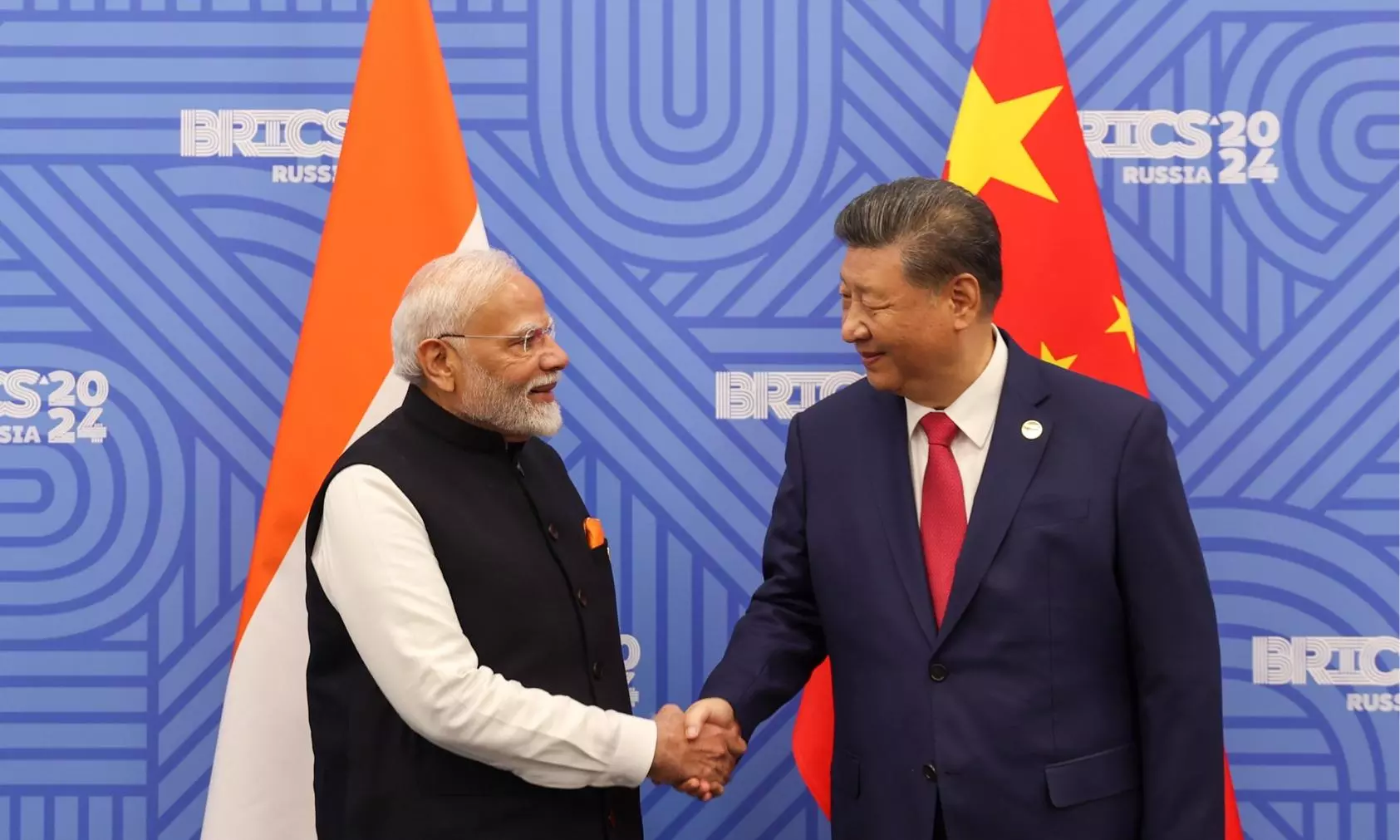
Modi-Xi meeting, its implications: Can India tame the Chinese dragon?
There is much optimism about the latest China-India pact on disengagement at LAC, but how far does it go to address the border conflict?

The recent meeting between Prime Minister Narendra Modi and Chinese President Xi Jinping on the sidelines of the BRICS Summit in Russia marked a significant diplomatic event, especially after the two countries agreed to disengage at certain points along the Line of Actual Control (LAC) in Ladakh.
This agreement, which involves a temporary cessation of hostilities, may be a positive step, but it remains to be seen if it will lead to a meaningful de-escalation, said S Srinivasan, Editor-in-Chief of The Federal.
Srinivasan analysed the broader implications of the Modi-Xi meeting in the second episode of Talking Sense with Srini, which is The Federal's YouTube program on current affairs. While there is optimism around the disengagement, the complexities of Sino-Indian relations cannot be overlooked, he added.
A fragile peace?
Srinivasan explained on his show that the agreement on disengagement at areas like Depsang and Depsang Plains reflects a tactical move rather than a breakthrough in resolving the long-standing border issue. Both countries will maintain patrols but with mutual notifications, suggesting that tensions may simmer under the surface.
"Disengagement doesn't mean de-escalation," Srinivasan warned, pointing out that several confidence-building measures have to be implemented for sustained peace.
The geopolitical landscape is constantly shifting, with the US elections just around the corner and India’s delicate balancing act between global powers like the US, Russia, and China. "One view, as expressed in The Federal by Managing Editor K Dakshina Murthy, suggested that India may be hedging its bets by warming up to China in response to recent pressures from Western nations," said Srinivasan.
Watch: China-India border dispute trade thrives but diplomatic ties dive
Economic ties, strategic interests
Economically, China’s interest in India as a trade partner remains strong. Despite strained relations, trade between the two nations is highly imbalanced, with China exporting much more to India than it imports, pointed out Srinivasan. This presents an opportunity for China to improve its sluggish economy, but India is cautious, he added.
India has banned apps like TikTok and is wary of Chinese technologies that can pose security risks. However, as Srinivasan pointed out, India may still require Chinese expertise in sectors like battery manufacturing.
Also read: As cold air blows from the West, Modi turns to China for warmth
Diplomatic posturing vs reality
While Modi enjoys a strong rapport with world leaders, including Xi, and optics play a crucial role in diplomacy, Srinivasan noted that India’s foreign policy is increasingly muscular under Modi. "Unlike the Nehruvian era of non-alignment, India today is engaging in strategic multi-lateralism – balancing relationships, while pushing its own national interests forward," he said. "It’s the economy, stupid!" he quipped.
India's long-term strength, especially in countering China's influence, will ultimately depend on its economic growth and strategic capabilities, Srinivasan observed.
The disengagement at the LAC may be a diplomatic victory, but the larger game between India and China is far from over, he added.
Watch 1st episode of Talking Sense with Srini: Can India fend off US pressure amid Canada fallout?
(The content above has been generated using The Federal’s proprietary AI model. To ensure accuracy, quality, and editorial integrity, we employ a Human-In-The-Loop (HITLO) process — while AI assists in creating the initial draft, our experienced editorial team carefully reviews, edits, and refines the content before publication. At The Federal, we combine the efficiency of AI with the expertise of human editors to deliver reliable and insightful journalism.)

